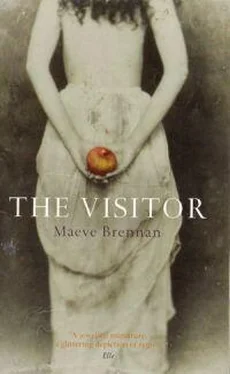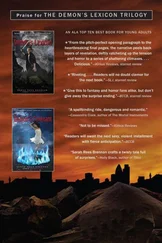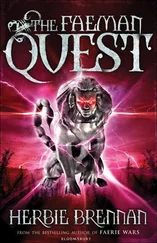Maeve Brennan - The Visitor
Здесь есть возможность читать онлайн «Maeve Brennan - The Visitor» весь текст электронной книги совершенно бесплатно (целиком полную версию без сокращений). В некоторых случаях можно слушать аудио, скачать через торрент в формате fb2 и присутствует краткое содержание. Жанр: Проза, на английском языке. Описание произведения, (предисловие) а так же отзывы посетителей доступны на портале библиотеки ЛибКат.
- Название:The Visitor
- Автор:
- Жанр:
- Год:неизвестен
- ISBN:нет данных
- Рейтинг книги:5 / 5. Голосов: 1
-
Избранное:Добавить в избранное
- Отзывы:
-
Ваша оценка:
- 100
- 1
- 2
- 3
- 4
- 5
The Visitor: краткое содержание, описание и аннотация
Предлагаем к чтению аннотацию, описание, краткое содержание или предисловие (зависит от того, что написал сам автор книги «The Visitor»). Если вы не нашли необходимую информацию о книге — напишите в комментариях, мы постараемся отыскать её.
The Visitor — читать онлайн бесплатно полную книгу (весь текст) целиком
Ниже представлен текст книги, разбитый по страницам. Система сохранения места последней прочитанной страницы, позволяет с удобством читать онлайн бесплатно книгу «The Visitor», без необходимости каждый раз заново искать на чём Вы остановились. Поставьте закладку, и сможете в любой момент перейти на страницу, на которой закончили чтение.
Интервал:
Закладка:
Maeve Brennan
The Visitor
Foreword
A good novella should be as compact and elegant as a perfect cocktail and pack just such a punch. Novellas such as Nabokov’s Transparent Things , Turgenev’s A Russian Beauty and Chekhov’s Lady with Lapdog are slender telescopes on large and luminous worlds. Their success depends on perfect focus, physical and emotional. In the right hands they are infinitely superior to the vast numbers of pretentious and overweight novels being written today.
It would be difficult to find the equal of the three short works mentioned above, but The Visitor (discovered after the author’s death as an eighty-page typescript) merits a place in their company. As a study in desolation and monstrous selfishness it stands on its own.
The Visitor tells of Anastasia’s return to Dublin after the death of her mother. She had been in Paris comforting the distraught woman, who ran away from a disastrous marriage. Like a wounded animal blindly burrowing for shelter, Anastasia scurries back to the house in Ranelagh where she was raised. To the frightened twenty-two-year-old the suburban house spells just one thing: “home”. But “home” is now the preserve of her grandmother, Mrs King, an obtuse, religious, self-satisfied old woman who bears a grudge against her granddaughter for siding with the woman who took her only son away from her and then left him. She feels no pity for the young girl, only the strength of her own resentment and the need to avenge it. It soon becomes evident that it was the grandmother herself who destroyed her son’s marriage by a campaign of cruelty against Anastasia’s sensitive mother. Now she has a fresh victim. The ensuing cat-and-mouse game is made all the more horrifying by Anastasia’s determination to make a nest for herself in the only refuge she knows.
The author of this poignant short work is an enigma. How could this superb manuscript have lain unpublished until after her death? In her lifetime Maeve Brennan was both a celebrated literary figure and a celebrated beauty, a key figure of The New Yorker set, yet until a recent revival of her work, few in the contemporary literary world had even heard of her.
Brennan made a dramatic entry into the world in Dublin in 1916, the year in which her father, Robert Brennan, fought in the Easter Rising and was sentenced to death for his part in it. His sentence was commuted and on his release from prison he became a servant of the new state. His appointment in 1934 as Ireland’s first American ambassador seemed set to give his good-looking daughter a privileged start. When the family returned to Ireland, Maeve stayed on and was eventually head-hunted by The New Yorker , where she worked as a diarist on “The Talk of the Town”. Later, her short stories were published there. At the height of her career she married The New Yorker ’s managing editor, St Clair McKelway, and went to live with him in Sneden’s Landing, an exclusive retreat on the Hudson River.
Observers must have imagined this marriage set the seal on Maeve’s dazzling career. But McKelway was an alcoholic and the shallow-minded snobbery of Sneden’s Landing would have marked her as an outsider. The marriage broke up and Maeve became a wanderer. She was an exile in the most painful sense. She had nowhere to call home and no kindred spirit with whom to share her unique vision of the world. It may well have been that her removal from her native country at a vulnerable age established her sense of homelessness. “Home,” she wrote in The Visitor , “is a place in the mind. It is a silly creature that tries to get a smile from even the most familiar and loving shadow. Comical and hopeless, the long gaze is always turned inward.”
Ranelagh remained with her as a setting for many of her short stories as well as this novella (one of her earliest works of fiction, written in the 1940s when she was still in her twenties). Sneden’s Landing became the fictional Herbert’s Retreat in a savagely satirical set of short stories. But her own life began to disintegrate as she got older. In a letter to her long-time editor, William Maxwell, she wrote: “All we have to face in the future is what happened in the past. It is unbearable.” After a nervous breakdown in her middle years, she stopped writing and became an eccentric squatter in a tiny boxroom behind the ladies’ lavatory at The New Yorker offices. She emerged only to abuse staff and visitors and eventually ended up in a series of mental hospitals, before her death at the age of seventy-six.
The word “lonely” tolls like a solitary bell throughout the pages of The Visitor . Brennan doesn’t just write about loneliness. She inhabits it. She exhibits it. She elevates it to an art form. The shy, the dispossessed, the dominated, are seen not in the world but teetering on some perilous rim of it, from where they cannot possibly keep their balance but have a unique view. The painful self-consciousness of her characters is reflected in a constant feeling of watchfulness. In one of her short stories, “A Snowy Night on West Forty-Ninth Street”, an elderly Frenchman whose solitude is exposed as he dines alone in a restaurant is “as proud and indifferent as though he were facing a firing squad”. Inanimate objects have their own bizarre life. The street lamps “drew flat circles of light around them and settled down for the night”. Later, when the streets were emptied (and therefore safe) the same circles of light were “changed to shining pools of darkness and made crooked mirrors for faraway stars”.
The sense of understated foreboding that runs through the pages of The Visitor reminds one of another superb short work, The Turn of the Screw by Henry James. The suburban house in Ranelagh, with its memories and resentments, is permeated by a sense of danger and unease, heightened by Anastasia’s lack of awareness and her monumental lack of judgement. The late Penelope Fitzgerald wrote that Brennan’s writing “carries an electric charge of resentment and quiet satisfaction in revenge that chills you right through”.
In the grandmother, Brennan has created one of the great monsters of modern Irish fiction. Yet Mrs King is never unmannerly or ill-tempered. She is merely selfish. She smiles angrily. She feeds daintily on the fears of the vulnerable, waiting with a quiet and patient pleasure as they blunder into self-destruction. In a sequence of almost unbearable pathos Anastasia begs to bring home her mother’s body for burial with her father. As the grandmother delicately dismantles her arguments, Anastasia “saw the miserable gate of her defeat already open ahead. There only remained for her to come up to it and pass through it and be done with it. Be done with it, she thought, be done with it”.
Brennan’s extraordinary control is evident in her refusal to use her heroine to mark a contrast. In her own way, Anastasia is shown to be as narrow as her grandmother. Another despairing soul, Miss Kilbride, seeks Anastasia’s help. Dominated by a dreadful mother, who addressed her as “Other Self” and destroyed her only love affair, Miss Kilbride is now dying. But when the time comes, Anastasia is too self-absorbed to carry out Miss Kilbride’s dying request.
William Maxwell observed that Maeve Brennan set great store by W B. Yeats’ statement: “Only that which does not teach, which does not cry out, which does not persuade, which does not condescend, which does not explain, is irresistible.” Brennan’s great skill is to never exaggerate, never emphasise. Her language sometimes seems so direct as to be childlike, but it has a visionary clarity. Cats are seen “running like rocking horses”. A cottage resembling its large neighbouring house appears to have been “baked from a bit of dough left over”.
Читать дальшеИнтервал:
Закладка:
Похожие книги на «The Visitor»
Представляем Вашему вниманию похожие книги на «The Visitor» списком для выбора. Мы отобрали схожую по названию и смыслу литературу в надежде предоставить читателям больше вариантов отыскать новые, интересные, ещё непрочитанные произведения.
Обсуждение, отзывы о книге «The Visitor» и просто собственные мнения читателей. Оставьте ваши комментарии, напишите, что Вы думаете о произведении, его смысле или главных героях. Укажите что конкретно понравилось, а что нет, и почему Вы так считаете.











